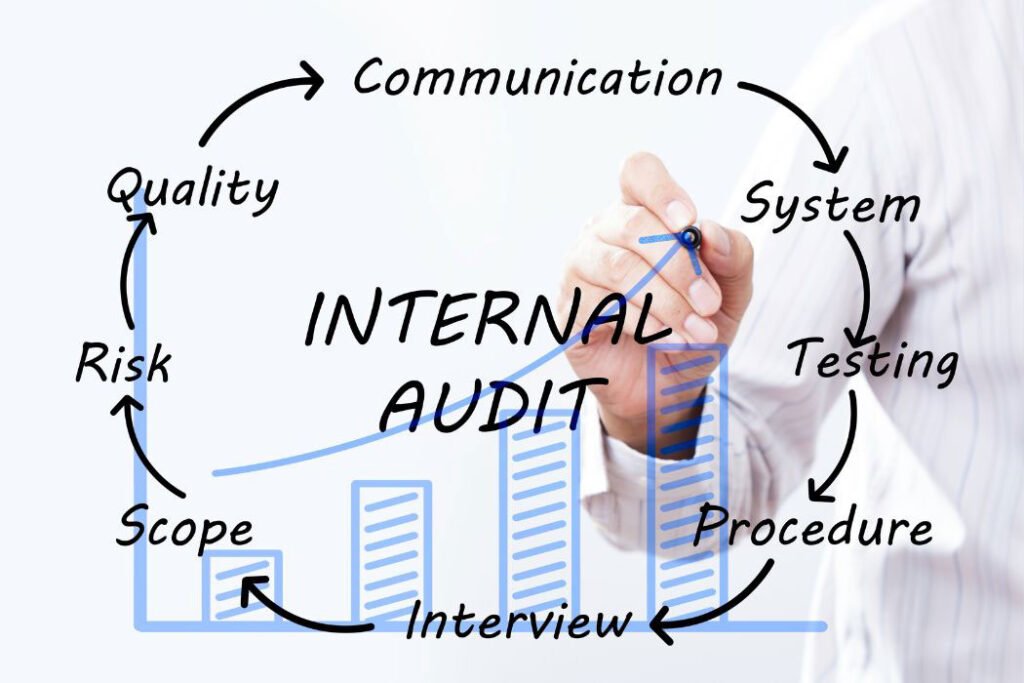The process of assessing an organization’s whole business, including its internal controls, regulatory compliance, corporate governance, and accounting procedures, is known as internal auditing. It is carried out in a way that enhances the entity’s operations and adds value. On the other hand, our global internal audit services encompass various business operations and internal controls of the organization.
The internal audit services offered by Eladuitors are beneficial to boards and senior executives. Experts from our group help companies improve internal auditing’s effectiveness, value, and quality. With Eladuitors’ thorough understanding of risks and potential areas for operational development, especially the unique characteristics of specific market and industrial sectors, internal audit functions can grow their performance and operating efficiency while bringing value to their enterprises.

The process of internal auditing within a firm typically involves four key stages: planning, fieldwork, reporting, and follow-up. Let’s delve into each step:
Customized Audit Strategy: Our methodology is customized to efficiently meet the unique needs and goals of every customer.
Adherence to International Standards: To ensure the highest level of industry compliance, we closely adhere to the International Standards on Quality Control, Auditing, Review, and Related Assurance Services.
Risk Identification and Management: In close collaboration with our clients, we identify high-risk areas and create effective solutions to reduce them.
Proactive Client Communication: We engage in proactive and regular communication with our clients, providing them with insightful information that helps them make well-informed decisions about their business ventures.
Ensuring Operational Effectiveness: To support the organization’s overall integrity, our audits make sure that current operations are effective and that financial documents are kept safe.
Validation of Historical Records: We carefully check that a company’s past records are accurate and complete, making sure they meet predefined standards and criteria.
Enhanced Internal Controls: We strengthen internal controls by establishing thorough protocols and optimizing departmental operations for maximum efficiency.
Problem Resolution and Recommendations: We provide incisive recommendations to effectively tackle current issues and optimize workflows, cultivating an ongoing enhancement culture within the establishment.
Implementation of New Control Measures: When necessary, we assist in implementing new control measures, and we regularly deliver reports that enable the business to accurately monitor its performance.